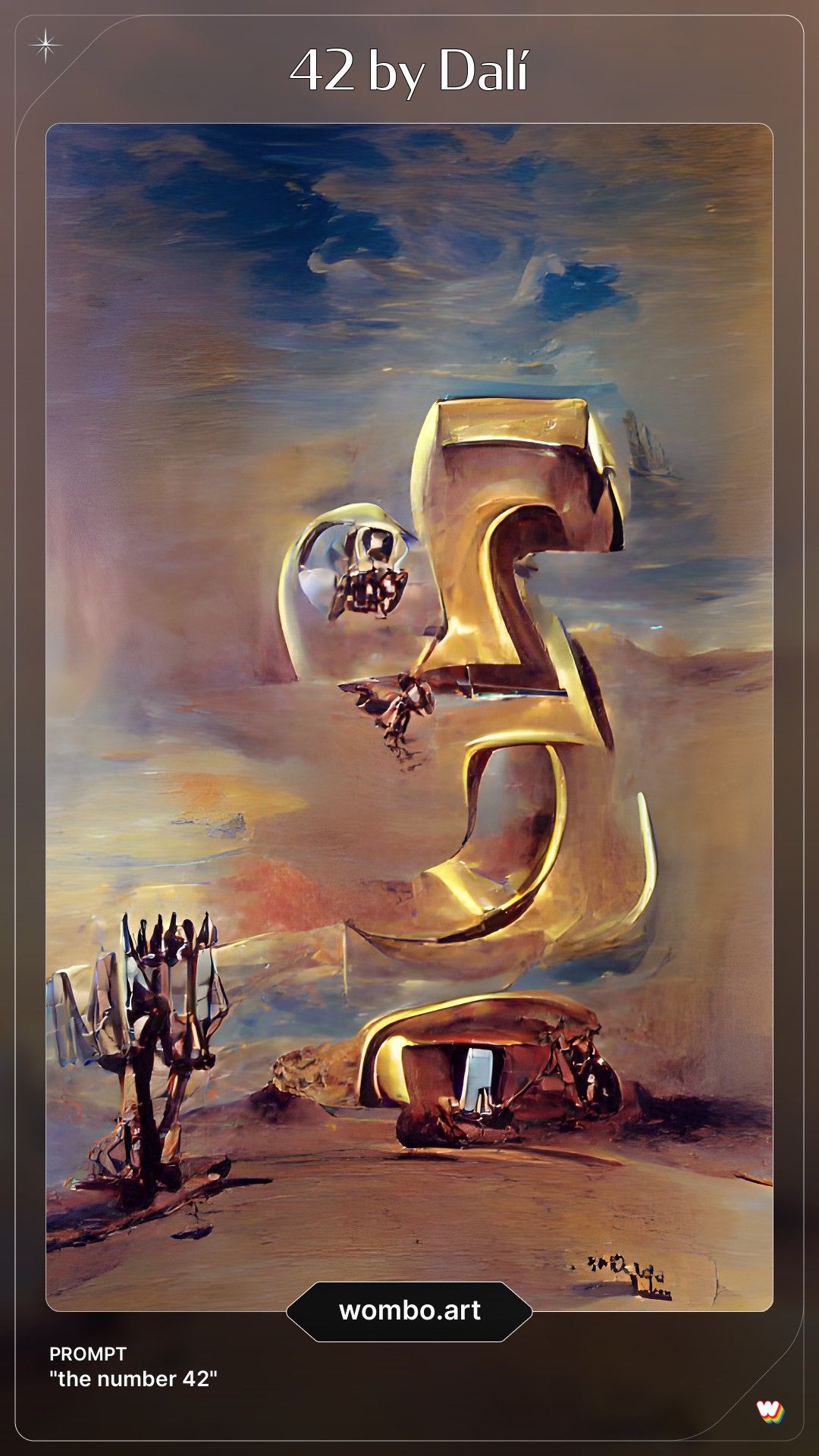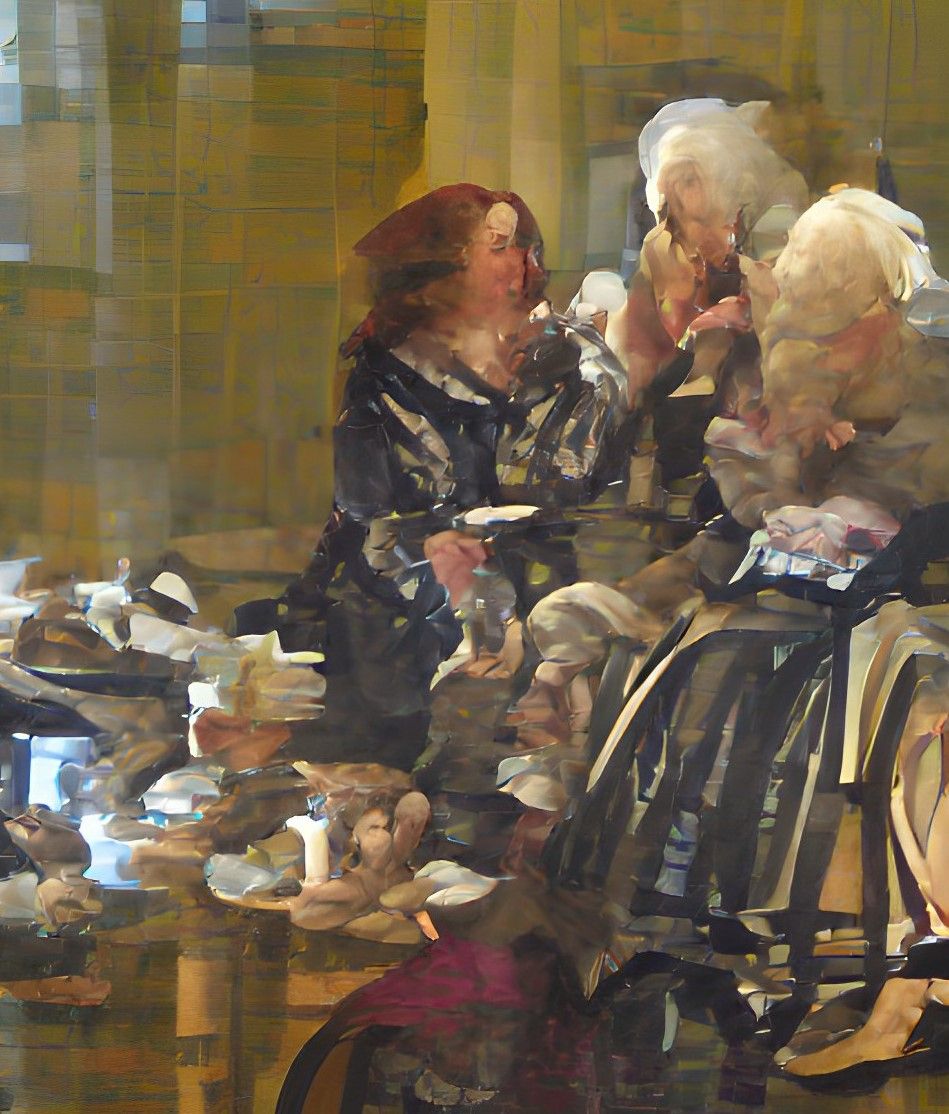ELEVEN - The Burgesses get their Words' worth
Published by Reblogs - Credits in Posts,
"Language is the foundation of civilization. It is the glue that holds a people together. It is the first weapon drawn in a conflict." - from the film Arrival
The next Dewey Decimal number to visit was obvious. She was pointing me to poignant language, the clue is in English, so I go to the directory for 420. Ah, one of my favorite numbers.
420.0 - Wording: Language > English and Old English
There, I find an eBook with the title Predicting_New_Words_The_Secrets_of_Their_Success.pdf . Keen as I am on detail, I notice that the book title has been filled in with the filename. I don't know if that matters to anyone else, but to me it's one of the most annoying things. I think Emma was punkin' me on this one.
So I open the document, and as is my custom (a custom of mine of which Emma is very aware), I go to page 42.
Why page 42?

Well either you already know, or it doesn't matter. Or, honestly, both. It's just a thing I do to see what the book is about. It's a good place to start, really. Everyone should try it.
On this occasion, for this book, Predicting New Words: The Secrets of Their Success, I scroll to page 42 and read:
"Perhaps the failure of the words in Burgess Unabridged comes from Burgess’s impish way of inventing words. In his introduction, he shows that he knows how words usually come into being, derived in familiar ways from existing words. "But to invent a new word right out of the air or the cigarette smoke is another thing," he notes, and then declares, "And that’s what I determined to do."
Burgess? Anthony Burgess maybe?
No matter what, I liked the gutsy, postmodernist confrontation of things authors come to take for granted. Ballsy guy, this Other Burgess.
I guess the next step is to see if I can find a copy of Burgess Unabridged.
The full title is Burgess Unabridged: A new dictionary of words you have always needed.
The author is Gelett Burgess, not Anthony Burgess. Disappointing, somewhat, since I was hoping this was going to be a journey to England, recasting , perhaps, some of the scenes from A Clockwork Orange. But a dictionary of words I've always needed? Still got MY attention! I turn to page 42, as per tradition, and this is the text of that page, verbatim:
they should dine on soft boiled eggs
In some new problem play,
Or lobsters broiled, or frogs’ hind legs—
What would the actors say?
Floo´i-jab, n. 1. A cutting remark, disguised in sweetness. 2. A ladylike trouble-
maker.
Floo´i-jab, v. To make a sarcastic comment in a feminine manner.
Floo-i-jab´ber-y, n. Feline amenity.
For the flooijab of commerce, see the typical Ethel-Clara dialogues in the comic
papers; and yet, one cannot describe the tone—the sugared smile that gives the
shot its sting. (See Varm.)
- Anent women’s looks, the flooijabs fly fastest.
- "Oh, yes, Helen used to be a very beautiful girl!"
- "We’re not so young as we used to be, but you do look awfully pretty, today."
- "No—I don’t think you look a day older—except when you are tired."
- "I’m so delighted that you are engaged to Harry! How did you do it—‘holding
- the thought’?"
- "They do say she’s awfully fast—but I never noticed anything—I think she’s
- sweet. Too bad she’s talked about so!"
- "I think you gave an awfully good performance—of course, you weren’t a Bernhardt, but then …" (See Wumgush.)
- "I’m so sorry you didn’t make good; it’s a shame! I think you did awfully well, really!"
- "I thought your little story was so good. I suppose influence with the editors
- counts a lot—doesn’t it?"
You think they talk of men and mice
-----
What the Wordsworth was Emma trying to suggest with this?! The top part of the page was actually a continuation of a poem on the previous page. The rules for including page 41 in my evaluation of page 42 was clear: I am allowed to include the beginning of any paragraph that ends on page 42. So here is the poem in its entirety, beginning on page 41 and ending on page 42:
I wish that I could eat as fast
As actors, on the stage;
Five minutes does a dinner last—
No fidgelticks enrage.
If they should dine on soft boiled eggs
In some new problem play,
Or lobsters broiled, or frogs’ hind legs—
What would the actors say?
Considering that Emma knows I have developed a recent interest in puzzle poetry, I am inclined to assume the clue is in the second stanza of that poem (the part that appears on page 42). Now this one seemed to be an actual clue. The content seems to matter in this one. Reading the whole two stanza poem, it would seem to be comparing meals to performance. Dining for performance is not something that only professional actors do. Everybody who has ever gone to a restaurant on a date or for a job interview, or an anniversary, whatever - they are certainly engaging in special rules reserved for public dining, while attempting to impress the audience of one who sits across the table. So, eaters are actors, and actors are eaters.
The poem also seems to play on the duality of the mouth's most important uses in humans: consuming food, and expelling words. Actors whose mouths are full, and who are preoccupied with the dining performance, are not going to be able to deliver good dialogue.
It mentions soft boiled eggs, lobsters, frogs (hind legs of), and the theme of the drastically abbreviated timeline of a dinner on stage. It suggests that perhaps we don't realistically depict dining when it comes to the stage (or the screen). Now, to a semiotician like Emma, why would that matter?
Food metaphors are all over the place in literature, so I instinctively think this is not at all about literal food or the real act of dining (staged or otherwise). This was metaphor; I could smell it wafting from the page.
Food is usually a metaphor for culture and ideology (propaganda too, but culture and ideology both run on the same propaganda power train).
A book is a metaphor for culture. Food is a metaphor for books. Dining is a metaphor for reading, then.
But maybe it was that last line on the page - the poem that begins at the end of page 42: 'You think they talk of men and mice'. I allow myself the same rule for going to page 43 as I do for going to page 41. I believe in keeping paragraphs and families together. So here's the whole poem from the bottom of page 42 into page 43:
You think they talk of men and mice,
Of operas, and cabs;
Ah no! Beneath those phrases nice,
They’re shooting flooijabs.
No man can know—but women may
Interpret women’s smiles—
It’s what they mean—not what they say,
That stings in women’s wiles.

Is this an allusion to the reason Emma was so flustered as she departed for the airport?
On its first reading, for me at least, the poet author is saying in these stanzas that she is a master semiotician. She observes two separate phenomena that, when synthesized, result in catalytic changes to the meanings of certain sentences, actions, requests, etc. For example, a "thank you" followed by a smile; the smile is significant as much as the 'Thank you' is. But if the smile exhibits the very subtle microexpression -- the esoteric sign that all women, but only women, she says, can know -- then the smile comes to suggest a very different meaning than what a man observing the same smile reads it as a simple and straightforward, generic "smile" with no semiosis warranted.
Why no traditional third stanza? Normally there's thesis, antithesis, synthesis, in that order. The first two are taken care of (women know, men don't know, resolved . . . how?) Resolved by this very poem! The men who read it are now aware that there is an esoteric communications system that women have secretly been using his whole life, and he never noticed it.
The poem still feels to me like it needs a third stanza, so I reluctantly composed one, since it's hard to leave a missing piece missing when I know that I can help out. I came up with:
it needn't, though, thus always be!
New literary gleans
Will expose all such subtlety;
😎fare by other means.
Emma was calling my attention to 'written text'. This exercise was to get me to that clue. (I was really hoping the Top Hat thing would have come up by now, but I'm sure it'll come up soon; she knows I need encouragement checkpoints, and I know she will provide them at just the right moment). I hope.
But what text ?
